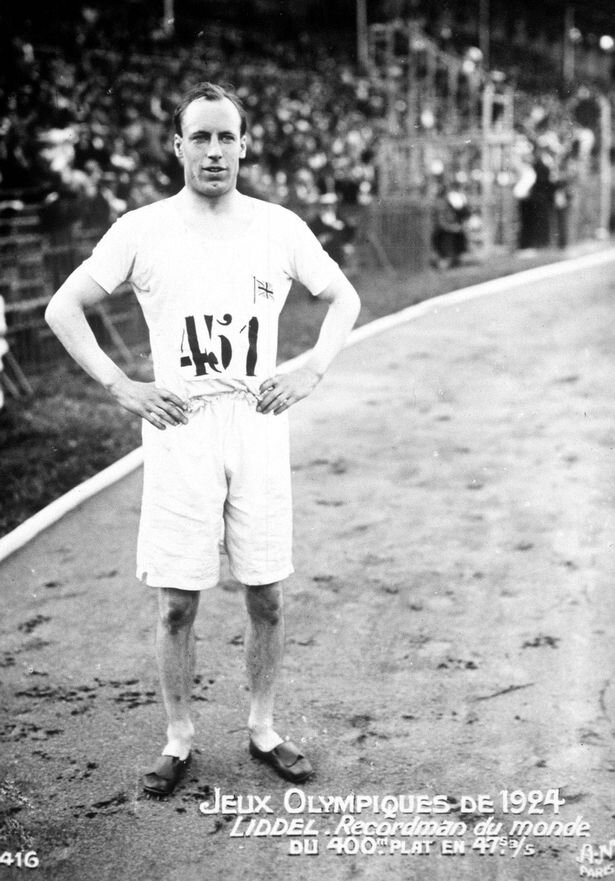Eric Liddell: From becoming an Olympic Gold Medalist to a Christian Missionary in China
My junior year is starting soon and it’s weird to think that the rest of college could be online. I don’t know what to expect, but I know I can rely on God as an everlasting refuge and rock in my life. Recently, reading during quarantine has been somewhat restless and relaxing at the same time, it gives something for my mind to focus on in the midst of the pandemic, but also a longing to go outside and experience the world again. One book in particular has recalibrated my mindset: “Eric Liddell: Something Greater Than Gold (Christian Heroes: Then & Now),” which runs through the course of Eric Liddell’s life (1902-45) from winning a gold medal in the 1924 Paris Olympics to saving lives as a Christian missionary in China. During my extended stay at home, reading this gave me a chance to rethink how much I was living my life for the Gospel, specifically as a college student. Here are some moments in the book that made me pause and reflect because, like my English professor always said, “in the moments that take you by surprise, that’s when you have to pay attention the most.”
For some context, Eric was born and raised in China for six years before moving to his parents’ homeland, Scotland. This is where he found his love for running, eventually becoming the famous “Flying Scotsman” after winning competition after competition throughout boarding school and university. I want to fast forward to a pinnacle decision he made at the young age of 22 that changed the course of his entire life. When Eric won an Olympic Gold Medal and returned home he told the public:
“It has been a wonderful experience to compete in the Olympic Games and to bring home a gold medal. But since I have been a young lad, I have had my eyes on a different prize. You see, each one of us is in a greater race than any I have run in Paris, and this race ends when God gives out the medals. It has always been my intention to be a missionary, and I have just received word that I have been accepted as a chemistry teacher at the Anglo-Chinese college in Tientsin, China. From now on, I will be putting my energy into preparing to take up that position.”
It’s just insane to think about how at the peak of his running career he decides to completely drop it. As a UC Berkeley student today, you see people all around who devote their entire lives to building their careers and I see myself wanting to follow along with everyone else: imagine a life with all the comfort, money, and security possible. I could honestly say that my life ambition would end with getting married and having kids, a house, and a dog or two. If I wasn’t a Christian I would peace out as soon as that happened and wouldn’t do anything else for the rest of my life except go on vacation #livinglavish. But reading this reminded me that this ultimately isn’t a fulfilling goal. I’m so challenged by how Eric gave up his selfish desires and saw his life as one that would serve God. It makes me ask myself “what I am doing to serve God? After college what direction will I choose to take?”
In Eric’s second visit to China he had to say goodbye to his wife and kids because he needed to go help the peasants and farmers in the villages and it was too dangerous for them to be there. During the Sino-Japanese War the Chinese villages were being constantly attacked by the Japanese, Nationalists, and Communists, so Eric went to meet the need. Every day he would hop on a bike with a translator to reach a village: some days it would be an opportunity to speak to the villagers and share God’s love and other days it would be a life or death situation where he had to bring people to the hospital after their homes were ransacked. The other missionaries he lived with during this time said that,
“Eric was soft-spoken and still a little shy, but there was no way other people’s opinions could cause him to do something he didn’t think was right or stop him from doing something he felt God had called him to do.”
Eric grew up without his parents because they were missionaries in China as well and he lived an immense portion of his life without seeing his wife and three daughters (one he didn’t even get to meet before his death). When I first read this I had to stop and think about what that must have been like. In words it sounds simple, but when I process the level of sacrifice Eric had to commit to and also how much he was able to do God’s work, it’s shocking. It’s incomprehensible to me how Eric was able to do so much for people without close relationships to support and strengthen him. For me personally, I rely so much on the people around me every day to live out a Christian life, but Eric was able to be separated constantly from his loved ones, enter a strange land, and stand alone, firm in his faith. Of course, close relationships are a blessing in Christian life, but it’s inspiring to learn about how Eric was able to rely solely on his relationship with God for the daily strength he needed to save people in China.
Another significant example of how Eric lived his life was during the time when the Japanese trapped a bunch of missionaries together in a concession after the attack on Pearl Harbor in 1941. The Japanese banned gatherings of more than 10 people, so they couldn’t have church. Eric didn’t know how long they would be trapped so he started “Afternoon Tea Church” where he would write bible study messages and invite 9 people to his home for tea, teach them, and then give them copies of the message so that they could invite another 9 people to their home. This way everyone was able to go to church on Sundays. Through actions like these I saw how Eric was able to continually persevere despite dangerous and discouraging conditions. Even though he could’ve faced terrible punishment from the Japanese and it didn’t seem like church could occur anymore due to the imprisonment, Eric still had God as number one in his heart. It didn’t matter that there was risk or inconvenience, Eric knew that everyone needs the Gospel at all times, especially during a world war.
One thing I learned about Eric is that he saw every day of his life as an opportunity to share the gospel and no inconvenience or setback would deter him from trying. He was generous with his time and energy and would go above and beyond to serve God. Even when he was in college and was so busy with his running training, he would speak about his faith at events and churches. Whenever he had a break or went back home from China on furlough he would find some way to honor God with his time by studying theology, speaking at churches, or making Christian guides. He knew his mission and valued it over anything else, even the comfort of being with his own family. As a student trying to reach other students, this inspires me to not just go through the motions and give minimal effort as I enter my junior year, but to truly be convicted in my heart by the urgency of the Gospel and how necessary it is, especially in the middle of this pandemic. To really live out the fact that although school and work are a priority, my relationship with God must come first. I hope to keep loving people even if it has to be through Zoom and to be more joyful in giving up my time to serve God, so that I can build my Christian character to be someone who can shine light among other people and do good in whatever circumstance I’m in.
Cameron Opartkiettikul (class of 2022, Berkeley A2F) is an English major and knows the whole alphabet. If he wasn’t a college student, he would be a YouTuber doing an eating show (aka mukbangs) just so he can have an excuse to always get boba, lattes and watermelon.




